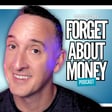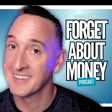
💰Wellthy Living: Personal Finance, Fitness, and Fulfillment! | Brad Finn 🏃♂️
Watch and Subscribe on YouTube
🤑 Wellthy Living is all about balancing personal finance, fitness, and fulfillment to create a life of true wealth and happiness. 🏋️♂️
Brad Finn shares his journey from paying off $190,000 in debt to achieving financial independence, while maintaining a focus on physical fitness and mental well-being.
In this episode, we discuss:
1️⃣ Brad Finn’s Financial Independence Journey: Learn how Brad leveraged Dave Ramsey’s principles to eliminate debt and build a strong financial foundation.
2️⃣ Fitness and Finance: Discover how Brad’s commitment to physical fitness complements his financial goals, creating a balanced and fulfilling life.
3️⃣ Entrepreneurship and Side Hustles: Explore how Brad turned his hobbies into profitable ventures, including his success on YouTube and in options trading.
4️⃣ Mindset for Success: Understand the importance of optimism and a growth mindset in overcoming challenges and achieving both financial and personal goals.
5️⃣ Real Estate and Hard Money Lending: Get insights into Brad’s approach to real estate investing and why he chose hard money lending as part of his strategy.
🔗 Brad's Links:
📘 Brad's Book The Wheel Strategy: Earn Passive Income Selling Calls and Put: Full Guide & Journal
📐 Brad's Physics & Math Channel
🏃♂️ Brad's Ultrarunning Channel
🎧 Brad Finn's 50k Ready Podcast
🔗 David's Links:
🎧 Forget About Money on Apple Podcasts
🎧 Forget About Money on Spotify
📜 Brad Finn Quotes:
💡 "Paying off debt wasn’t just about money—it was about freeing my mind and creating the life I truly wanted." — Brad Finn
💪 "Fitness and finance go hand in hand. When you’re disciplined in one area, it spills over into others." — Brad Finn
🚀 "Turning my hobbies into income streams wasn’t just about making money; it was about living a life that I’m passionate about." — Brad Finn
📝 Episode Highlights:
💸 Brad Finn’s Financial Independence Story
💪 How Fitness Fuels Financial Success
🚀 Turning Hobbies into Income Streams
🧠 Mindset for a Balanced and Happy Life
🏡 Real Estate Strategies Beyond Ownership
#financialindependence #personalfinance #fitnessjourney #entrepreneurship #mindsetmatters #debtfreeliving
🎧 Listen & Subscribe: Don't forget to subscribe to "Forget About Money" for more inspiring episodes with guests like Brad Finn. Hit the bell icon 🔔 to stay updated on new episodes!
Disclaimer: The content in this episode is for educational and entertainment purposes only and does not constitute financial, legal, or investment advice.

